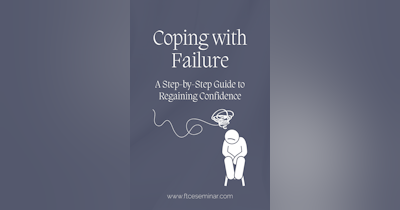Educational Podcasts in the Digital Age
This blog post explores the growing role of educational podcasts, their benefits, how they enhance traditional learning, and how they meet the unique requirements of today's students.
The emergence of podcasts in recent years has been driven by the increasing accessibility of technology and the growing demand for personalized and flexible learning experiences. Educational podcasts offer a convenient and engaging way for individuals to access high-quality educational content anytime, anywhere.
Benefits and Advantages of Educational Podcasts
Educational podcasts provide numerous benefits for both students and educators. Some key advantages include:
- Convenience and Flexibility: Podcasts are easily accessible on a variety of devices, allowing learners to consume content at their own pace and convenience.
- Personalized Learning: Podcasts allow learners to choose topics that align with their interests and learning goals, leading to a more personalized learning experience.
- Expert Content: Educational podcasts often feature interviews with experts and specialists, providing learners with access to valuable insights and perspectives.
- Enhanced Listening Skills: By listening to podcasts, learners develop their listening comprehension skills and ability to follow complex discussions.
How Podcasts Can Enhance Traditional Learning
Educational podcasts complement traditional classroom instruction by:
- Providing Supplementary Material: Podcasts can provide additional information and perspectives on topics covered in the classroom, reinforcing learning. Podcasts can be used in online courses to support primary content with course-notes overview, audio-based syllabi, exam preparation, or even faculty introductions.
- Promoting Active Learning: By requiring listeners to actively engage with the content, podcasts foster critical thinking and problem-solving skills. Listeners who study with podcasts can use the "Play, Pause, Repeat" method to deepen their understanding of a concept while they are taking notes.
- Democratization of Knowledge: Podcasts deliver content and knowledge once only accessible at institutes of higher learning, deep inside voluminous textbooks, or only available by peer-reviewed journal articles. Today, diverse learners can gain ancient wisdom, or current research and best practices through an audio-based medium and an electronic device literally catering to different learning styles and needs.
Meeting the Needs of Modern Learners
Educational podcasts are particularly well-suited to the needs of modern learners by:
- Addressing Diverse Learning Styles: Podcasts offer a range of formats, from interviews to lectures to discussions, accommodating various learning preferences.
- Fostering Parasocial Bonds and Communities of Practice:
- Podcasts create a community of learners that share a parasocial relationship with podcast hosts. This unique bond encourages discussions, interactions, and communication about in-depth topics bridging the hard-to-discuss ideas between the hosts and the listeners. Podcasts enable learners to participate in professional development while staying updated on best practices in their field of interest via communities of practice.
The Future of Educational Podcasts
The future of educational podcasts looks promising as technology continues to advance. We can expect to see:
- Increased Use of Interactive Features: Podcasts will incorporate more interactive elements, such as quizzes, polls, and synchronous discussion boards.
- Artificial Intelligence-Based Personalization: AI will play a role in customizing podcast recommendations and delivering content tailored to individual learners.
- Cross-Platform Integration: Podcasts will seamlessly integrate with other learning platforms, creating a cohesive learning experience.
Conclusion
Educational podcasts have become a valuable tool in the digital learning landscape. Their convenience, engaging content, and ability to enhance traditional instruction make them ideal for meeting the needs of modern learners. As technology continues to evolve, podcasts will play an increasingly significant role in shaping the future of education. By embracing the transformative power of educational podcasts, both students and educators can unlock new avenues for learning and growth.
To learn more about the role of educational podcasts, listen to our latest episode, E45: What is an Educational Podcast? Interview with FTCE Seminar host, Mercedes Musto, by Samantha Arnoldussen.







